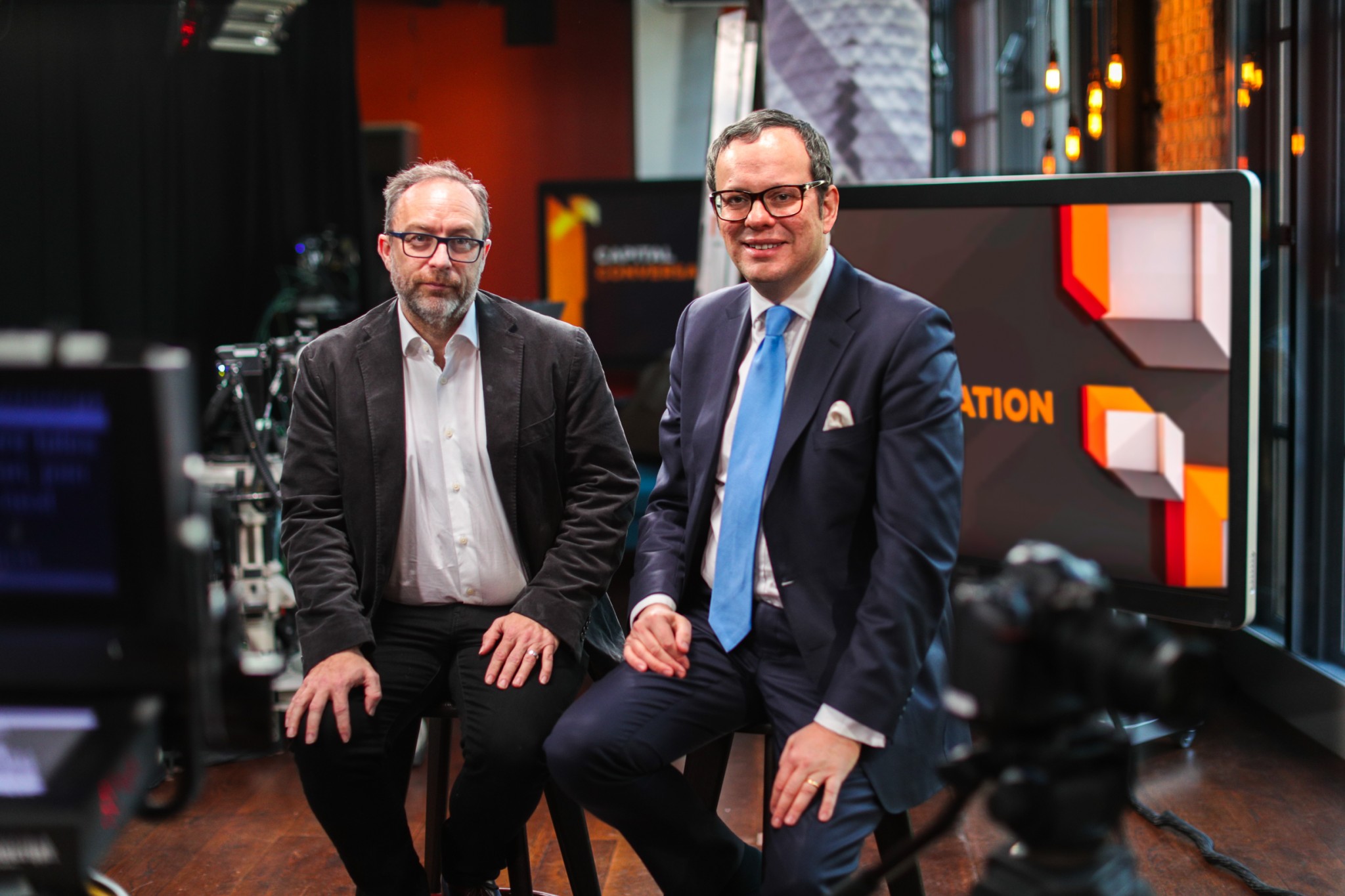
Editorial Campaign Manager Edward Baggaley reviews last night’s episode of Capital Conversation.
“We are living in a mad, bad period that will swing back to normality eventually.” Words of reassurance that, coming from the mouth of Wikipedia founder Jimmy Wales, add a little extra comfort.
Jimmy is one of a handful of digital pioneers who can fairly say they’ve changed the way the world works. The online encyclopaedia hosts more than 40 million articles, written in over 270 languages.
The founder’s optimism that a return to normality is on the cards is striking considering he finds himself and his creation on the frontline of the battle against fake news.
Speaking to Michael Hayman on the latest episode of The Capital Conversation, Jimmy blames its rise on low quality media – especially at the local level – and politicians who “have very little concern for actual facts.” In turn, this creates what he describes as a public that is “systematically misled and confused by a lot of nonsense.”
That is why, Jimmy says, Wikipedia’s original mission is as important as ever: to present the highest quality information available.
This commitment to broadcasting the truth led Jimmy to found WikiTribune in 2017. The site pairs professional journalists with citizen journalists, having them work together to write stories in real time and backing them up with a community that checks and rechecks facts.
The news website is based in London, the city that Jimmy has called home for several years. “London is in many ways still the capital of the world,” he says, praising the UK’s tech scene and it’s “constant stir of start-ups.”
Whilst paying tribute to the city, he warns of the damage Brexit could do. As competitors like Berlin and Barcelona build their tech reputations, he says any potential changes to the UK’s immigration policies could be detrimental to London’s tech potential.
“A second referendum should have been on the agenda all along,” he argues. So, what accounts for the original outcome? He says misleading information and a “rise of manipulating fear of the other” swayed the vote.
Wrapping up the interview, Michael asks whether tech greats like Wales and Mark Zuckerberg will go down in history as the icons of our time.
‘I would certainly lump a lot of them in with Henry Ford: business leaders that were involved in a transformative technology… [but] it’s hard to say what the judgement of history will be’.
You can watch the full episode here.